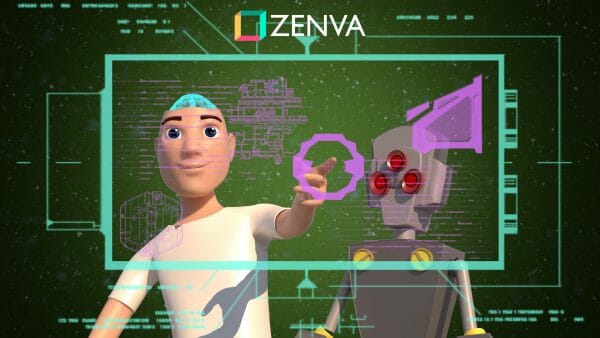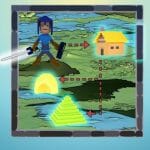Have you ever said, “I want to learn to code”? While at this point it might seem cliche to say, coding is an expansive field with ample opportunities. You can build your dream game projects, base your whole career on the field, or even become a business entrepreneur. There are numerous paths to take when you know how to code.
However, learning how to code is, well, not easy for everyone. For some people, it clicks instantly, and for others, it takes a while for your brain to learn to think how a computer thinks. Thus, you may be left struggling and wondering what is the best way to learn to code. In this post, we’re going to talk about just that, and explore the 10 best ways to go about learning how to code. Though not every single aspect will work for you, we’re sure you’ll find one that does help it all click so you can get to developing games and apps in no time!
Before we Learn to Code
Before we get ahead of ourselves, let’s take a step back and understand coding. If you’re familiar with the concept of coding and how it works in the technical sense, feel free to skip ahead. For those who want to learn to code but need to understand the terms first in layman’s terms, this is the section for you!

What is Coding?
So, what is coding? In the most basic sense, coding is simply the process of writing instructions for a computer to interpret and execute. Think of it the same as if you were writing a cooking recipe. First, you’d make a list of ingredients and how much of each is needed. Then you’d write step-by-step the process of cooking it – whether that meant mixing a batch of batter or putting something in the oven for 45 minutes at 300 degrees. Coding is basically the same concept: you provide the computer with data (ingredients), and then tell the computer what to do with that data.
However, coding does differ a bit from this analogy. In short, computers do not think the same as a human. While I can say, “Preheat the oven to 300 degrees,” and you’ll understand that as a human, a computer is going to just sit there saying, “Cannot compute.”
Instead, when you learn to code, you learn to “speak” to a computer in its language. Essentially, we created ways for computers to understand keywords and perform calculations, and coders tap into that ability. If you like analogies, think of it as if you were making that cooking recipe from above, only you had to tailor it to a 3-year old. Obviously, you can’t use the same language you would for an adult, so you would have to tailor it to the child, such as providing pictures or other roundabout ways to get the same action. In the same, you have to tailor instructions to match a computer’s needs.
So, in summary, coding is just making instructions, but instructions written in a way specifically intended for a computer.
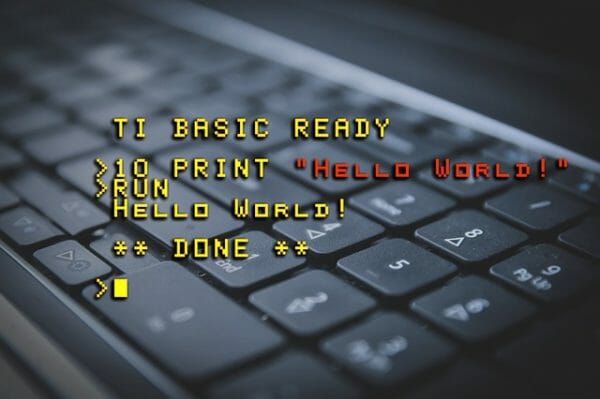
Why Learn Coding?
The next point we want to discuss before we learn the best ways to learn to code is just the why. Why would you want to learn to code? Well, here are just some of the reasons below.
- You can create your dream game project. For the gamers out there, you’ve probably thought of at least one game idea, whether that was just making a simple platformer to try your skills or making a clone of your favorite game. However, none of this is achievable without some coding knowledge. Thus, learning to code gets you one step closer to making your games a reality. Plus, when you learn coding for games, you’ll probably have a lot fun doing it too.
- You can create apps that are missing from the market. Was there ever a time in your life where you wanted a mobile app to do something, but none of the apps available had that as a feature? Well, with coding, you can create your own app and add this feature. Not only will you benefit, but you can also make the app available to the public and help other people out.
- Coding is in-demand. As a STEM field, coding is quickly rising in demand. While it varies from field to field, almost all fields are seeing an increase in this demand. For example, jobs for software developers in the US are expected to increase by 21% over the next decade according to the BLS. And, according to ncube, there is actually over a million job deficit for software developers, as graduate rates are not outpacing retirement rates. Other field like web development, data science, and machine learning are in demand as well, so it doesn’t stop there!
- Coding can net you a good salary. Again, another point that will vary on specialties and location. However, there is a lot of earning potential. For example, developers in web development can earn $67,174 on average according to PayScale, whereas software developers (according to PayScale again) earn an average of $72,635. Other fields like data science and machine learning vary, but this should give you an idea of the earning potential possible!
- You can start a business. Ecommerce is becoming a huge factor for the business world, and it has allowed a lot of small businesses to pop up and run with minimal staff needs. Knowing a bit of coding for web development can go a long way for setting up your own site and providing a unique product or service.
- You can improve your productivity. One of the biggest advantages of computers is their ability to quickly perform many complicated calculations in the blink of an eye, and do so without needing to be nagged to do. When you learn to code, you can tap into this ability and automate a ton of tedious tasks you do all the time, such as backing up your computer or even generating charts based on Excel data.
With all this out of the way, we can now traverse into our actual 10 best ways to learn to code.
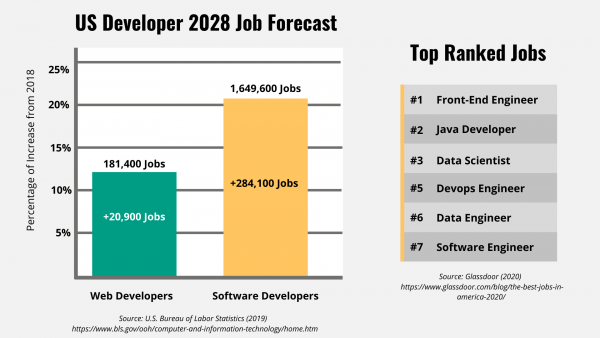
Start Learning Programming Languages
It may seem obvious, but one of the best ways to learn to code is to just pick a programming language and start learning how it works. There are a variety of paid and free resources available for just about any programming language out there, and you can even strive to learn more than one. Also, it doesn’t even particularly matter which programming language you choose or think is best (though this post can help with that). The important thing is you just start learning to code with one.
The reason this is important and a good way to learn to code is not for the reason you think it is, though. Of course, you absolutely need to know a language to be able to code. However, what’s important here is not the language itself, but the fundamentals behind the language.
No matter whether you learn Python, C++, or some other language, coding languages generally have the same tools behind them. For example, they all feature variables to store pieces of data, they all feature functions that contain sets of instructions that can be run many times, they all contain operators that can perform calculations, and so forth. As such, the syntax (i.e. the grammar) of the language is not important.
The reason to learn a programming language (and even multiple) to learn to code is to absorb these fundamentals. These fundamentals are literally the backbone of every program out there, and they can’t be avoided. So the more programming languages you work through, the more you can absorb the commonalities and why these features exist across programming languages. And once you understand these fundamentals and know how to use them, you can learn any language, and coding will truly click in terms of how to use it in practice.
As a note, though, we do recommend learning more than one programming language if you’re looking for a professional career. Most developers are expected to know more than one, and its super easy to find free coding classes, video tutorials, and so forth in different programming languages – so it doesn’t have to break your budget.
Learning Resources
- HTML & CSS 101 – Responsive Company Website by Zenva
- Learn web development as an absolute beginner (2020) by Coder Coder
- JavaScript 101 – First Programming Steps by Zenva
- How I Would Learn Javascript FAST in 2023
- C# Basic Series by Allan Carlos Claudino Villa
- How to Program in C# by Brackeys
- How to Get Started Programming in C++ by Nimish Narang
- Let’s Learn C++ by Trevor Payne
- Zero-Day Java Guide by Mohit Deshpande
- Java Programming All-in-One Tutorial Series
- Python 101 – Introduction to Programming by Zenva
- Python for Beginners Series by Microsoft Developer
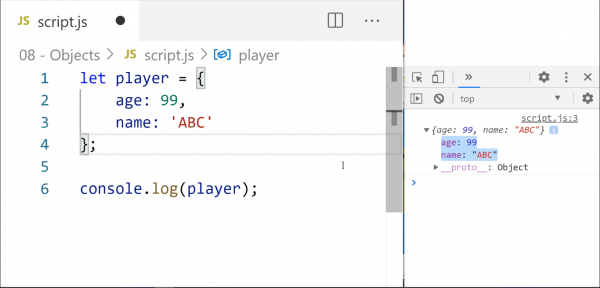
Take Online Courses
Self-study is all well and good, but not everyone learns that way. Plus, it takes a lot of time to find a GOOD resource that is not only well-structured but also suits your specific learning style.
So, it is often wise to invest just a bit of money and try out some online courses. But why is this one of the best ways to learn to code, especially over complete self-study? The largest reason comes in the form of structure. While you can find a lot of tutorials on language syntax, you won’t find as many on actually how to apply that syntax and coding fundamentals in a way that has practical application. Many online courses, though, strive to go past just that syntax level.
Instead, many are structured with this practical application in mind, and let you practice on projects in and of themselves with the material you learn. Plus, because online courses can be more easily connected, you don’t have to guess at pre-requisites and can take courses in sequence to upgrade your skills in the way the creator of the course intended. This is not to mention the other advantages of online courses, such as affordability compared to formal education and the ability to do them at your own pace.
So, online courses are definitely one of the best ways to learn to code, as they provide you with a guiding hand that free resources don’t always possess.
Learning Resources
- Python Mini-Degree
- Unity Game Development Mini-Degree
- C++ Programming Bundle
- Full-Stack Web Development Mini-Degree
- Godot Game Development Mini-Degree
- HTML5 Game Development Mini-Degree
- Mobile App Development Mini-Degree
- Unreal Game Development Mini-Degree
- EdTech Mini-Degree

Become a Search Engine Master
It’s time we tell you one of the greatest secrets. Are you ready?
Most coders do not have the answer to everything coding-related. Rather, coders spend an ornate amount of time turning to their friendly, neighborhood search engines for many coding-related things.
This is for a lot of reasons. Sometimes, a coder has simply stared at a piece of code so long that they can’t find the error anymore cause it just all blurs together. Then there are times where a coder simply has never come across a situation, and no matter how they trial and error, something just isn’t quite right about their algorithm. Or, in other cases, the coder’s program works… just not as efficiently as they would like.
No matter the case above, though, coders turn to search engines like Google a lot. And, when learning to code, learning how to search via search engines is definitely one of the best ways you can learn to code. It allows you to easily look up things on your own, and the better you are at framing your search terms, the more easily you can find the answer to your specific coding question. So, expanding your coding skills is as much about knowing how to use your search engine as it about everything coding-related.
Learning Resources
- 12 Cool Google Search Tricks You Should Be Using! by TechGumbo
- Essential Google Search Tricks for Research by Common Sense Education
- How to Google with Advanced Search Operators (9 Actionable Tips) by Ahrefs
- How Programmers Effectively Search for Answers on the Internet by Facebook Open Source
- How to Use Google to Solve Your Programming Questions by Coding in Flow
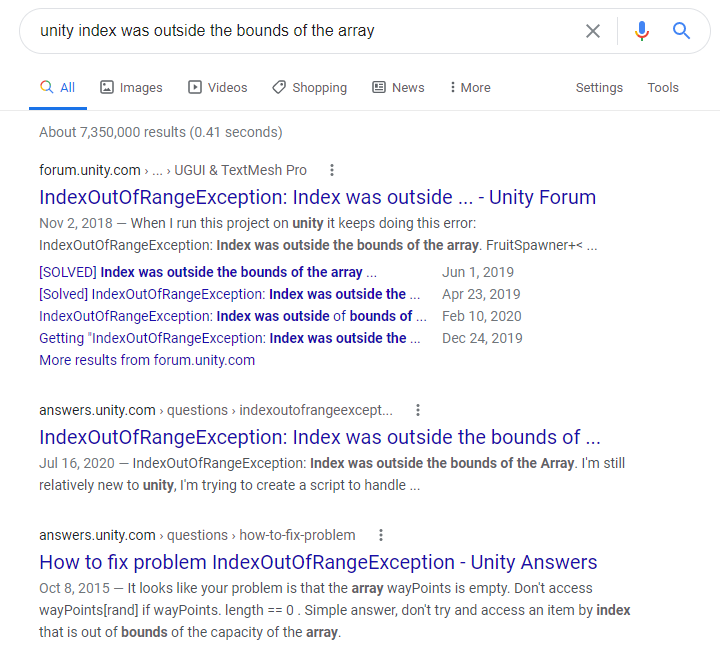
Explore Computer Science Fundamentals
Most people will tell you that understanding computer science isn’t a necessity to learn to code. This is definitely true. Plenty of coders out there have managed to make their projects without really understanding everything there is to know about computer science. And, to boot, many of those projects have seen massive success. So, we can’t say this is a necessity (unlike others on this list).
However, what we can tell you is that without computer science fundamentals, many coders hit a glass ceiling. This becomes especially apparent when projects start getting more complex. The more complex a project is, the more you have to consider aspects like performance, memory management, and so forth. This is not to mention there are many complicated algorithms that are available, but that you only really learn if you explore computer science and truly understand performant techniques that will optimize your coding project.
So, one of the best ways to learn to code, especially if you want to learn to code efficiently, is to simply explore these computer science fundamentals. The more you understand how a computer works and performs base functions, the more you can work on optimization in your technical skills. Even if you feel you already know how to code a bit, this method will help you upgrade your skills to the next level and allow you to add complexity to your programs you may not have been able to do before.
Learning Resources
- 3 years of Computer Science in 8 minutes by Devon Crawford
- Software Design Patterns and Principles by TechLead
- An Entire Software Development Life Cycle by ForrestKnight
- Overview of Machine Learning by Mohit Deshpande
- COMPUTER SCIENCE TERMINOLOGY by ForrestKnight
- Programming Words You Should Know by Dave Xiang
- Computer Science Series by CrashCourse
- Data Structures & Algorithms #1 – What Are Data Structures? by CS Dojo

Make a Board Game
If you missed us explaining coding, we described it as the process of writing instructions for a computer. However, disregarding the specific caveats of making the computer understand you, writing instructions themselves is not so easy. This is especially the case if you’re making a more complex program like a game, where you not only need mechanics, but also just need to understand how to structure your mechanics to make the experience balanced and enjoyable.
However, you know what features a lot of instructions and functions similarly to a computer program? Board games.
At the heart of it, board games are like the table-top version of a program. The rules of the games are essentially the instructions for how the “program” is supposed to proceed. For example, let’s say a game says each player rolls a dice, and then the highest number goes first. For a human, we’d perform the dice roll (which we know how to do), then check each dice roll to see who had the highest number. Well, a program would do essentially the same thing: the dice roll would be a function that generates a random number, and then the rolls would be stored and checked by a conditional.
From the example above, you can start to get the idea of how the two concepts relate. So, one of the best ways to learn to code is to step away from a computer and make a board game. This allows you to practice just the concept of making instructions, and how each instruction plays a role in the game. You can even take it a step further as we did above and determine how each instruction for the game would be translated into programming. Either way, it is a great way to practice fundamentals and take your coding knowledge into practical application.
Learning Resources
- Make Your Own Board Games for Kids by Alisha Warth
- 8 Amazing Board Games You Can DIY by Ashley Marcin
- How to Create a Board Game Series by TIMORUM Gamers
- 10 Best DIY Board Games for Kids – That You Can Make at Home! by Sarah Leiman
- Make a Game for Number Learning by

Check out Other People’s Code
If you’re a beginner, we’re pretty sure you’re not writing the most complex of programs. In fact, there are certain things you may know aren’t efficient or could lead to bugs, but you coded that way anyway just because it got the job done. Where can you go from there, though, especially if you want to improve how you’re coding already?
Well, the next best way to learn to code is actually to just check out other people’s code. Whether that person is a beginner themselves or an expert, you can learn a lot. Coding is, surprisingly, not an exact science. While everyone follows the same syntax, you can arrive at the same solution in different ways. This is especially noteworthy when we get into the topic of data structures and algorithms.
Particularly for complicated programs, data structures are a big part of determining how the program functions. This includes where things are stored, in what manner they’re stored, and so forth. Everyone does it differently, so even games based on the same premise might store the data for the player in entirely different manners. The same can be said of algorithms. For example, if you wanted to generate a maze, there are about a hundred different ways to write that algorithm, some more efficient than others, some involving “seeds”, and some involving pathfinding. Either way, each solution is tailored to the project.
Thus, to the point, you can learn how to code simply from how someone does something. There are many different techniques out there, and by exploring them you can learn to code that much better. Below, we’ve added some of our favorite coding tutorials where the code is entirely open for users to look at!
Learning Resources
- A Guide to Procedural Generation by Daniel Buckley
- Procedural Maze Creation in C# and Unity by Tim Bonzon
- How to Create an RPG Game in Unity – Comprehensive Guide by Renan Oliveira
- How to Train a Machine Learning Agent via Demonstration by Tim Bonzon
- How to Make Apps with Kivy by Nimish Narang
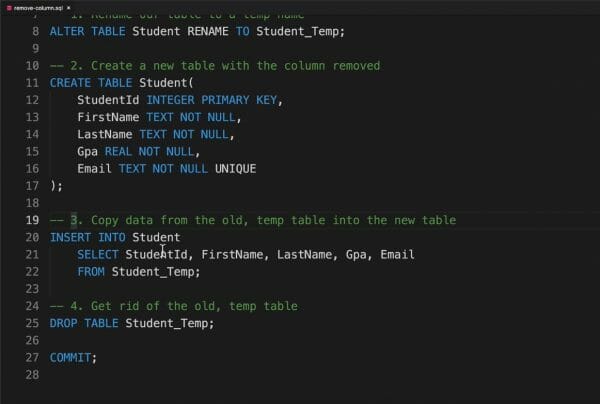
Build Small Projects First
Another one of the best ways to learn to code is just by making small projects. This is basically trial by fire, learning by doing, etc.
Now, of course, we do not suggest jumping in and making the next MMORPG, 3D rendering software, or similar. These are going to be a bit too complex, and you’ll wind up hitting a lot of roadblocks that may demotivate you from continuing the project. Not to mention, for some it can be so frustrating they give up coding altogether.
However, small projects are great for a lot of reasons. These sorts of projects can include a lot more than you think. For example, you can make a simple portfolio site to show off all your future coding projects that you’ll create. If you’re a gamer, you can try making a platformer, which are reasonably sized and feature a lot of mechanics you’ll use in many game projects. For those more interested in software, you make some automations that adjust files. There are endless amounts of ideas here!
The point, here, though, is that small projects get you to applying coding in a practical manner. They force you to make the connection between the abstract concept of things like “loops” and why and how you can use a loop to actually get real-world functionality you see everyday with computers. We do want to warn you the process can be a bit frustrating, but with each small project you make, the more you’ll understand, and the more you can move to bigger and more complex coding projects!
Learning Resources
- 3D Game Development 101 – Create a Basketball Game by Zenva
- Build Your First 3D Game in Unity by Zenva
- Create Your First 2D Game in Unity by Zenva
- Create a City Building Game in Unity by Daniel Buckley
- Generating random sentences by Playful Python
- How To Create A Website Using HTML And CSS Step By Step Website Tutorial by Web dev
- Create a Multiple Choice Quiz App Using JavaScript by Code Explained
- How to Make a Complete Game with Godot by Daniel Buckley
- Python – Text RPG Tutorial by Bryan Tong
- Coding for Kids: Languages and Project Ideas by Lindsay Schardon
- C++ Full Course 2022
- C++ Tutorial 18 – Simple Snake Game by NVitanovic
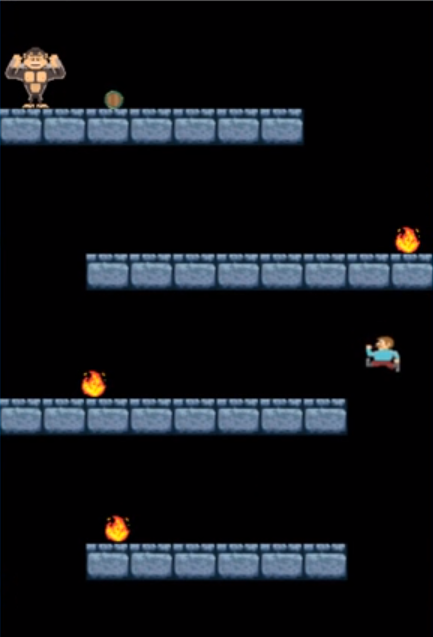
Try Modding
Building your own project from scratch can be rather intimidating. While there are templates or tools (like game engines), that can help take out some of the grunt work, you’re still going to be working from a blank canvas in a lot of cases. This can actually trip a lot of beginners up when it comes to coding, as they’ll get stuck in the “where do I start” hole of project creation.
To remedy this, though, you can always start with a pre-made canvas. By this, we mean modding. Modding, in the sense of programming, is the practice of taking a pre-existing program and altering the code base – whether that means adjusting an existing feature or adding something new. If you’re a gamer at all, this won’t be unfamiliar territory. Many popular games, like Minecraft, The Elder Scrolls Skyrim, Stardew Valley, and beyond, have enthusiastic communities that spend a lot of time adding new aesthetics and features to those games that anybody can download and use.
However, you can also put plugin creation under this umbrella too, as it follows the same definition. This means programs like Microsoft Word, Blender, and similar can be altered to take in plugins that add a variety of features.
While it doesn’t look it on the surface, this is definitely one of the best ways to learn to code for two reasons. First, it’ll actually get you working on a project, so you won’t just be staring at your blank canvas in confusion. Second, learning to both read and alter code is an important aspect of the learning process, so learning how to do so with someone’s pre-existing work will teach you fantastic techniques for understanding code and how you can work with data structures to get the result you want! Either way, modding can be a great gateway into coding, so it’s worth giving a try! Below, we’ve included a few popular sites where you can see what sorts of extra materials people are making.
Resources
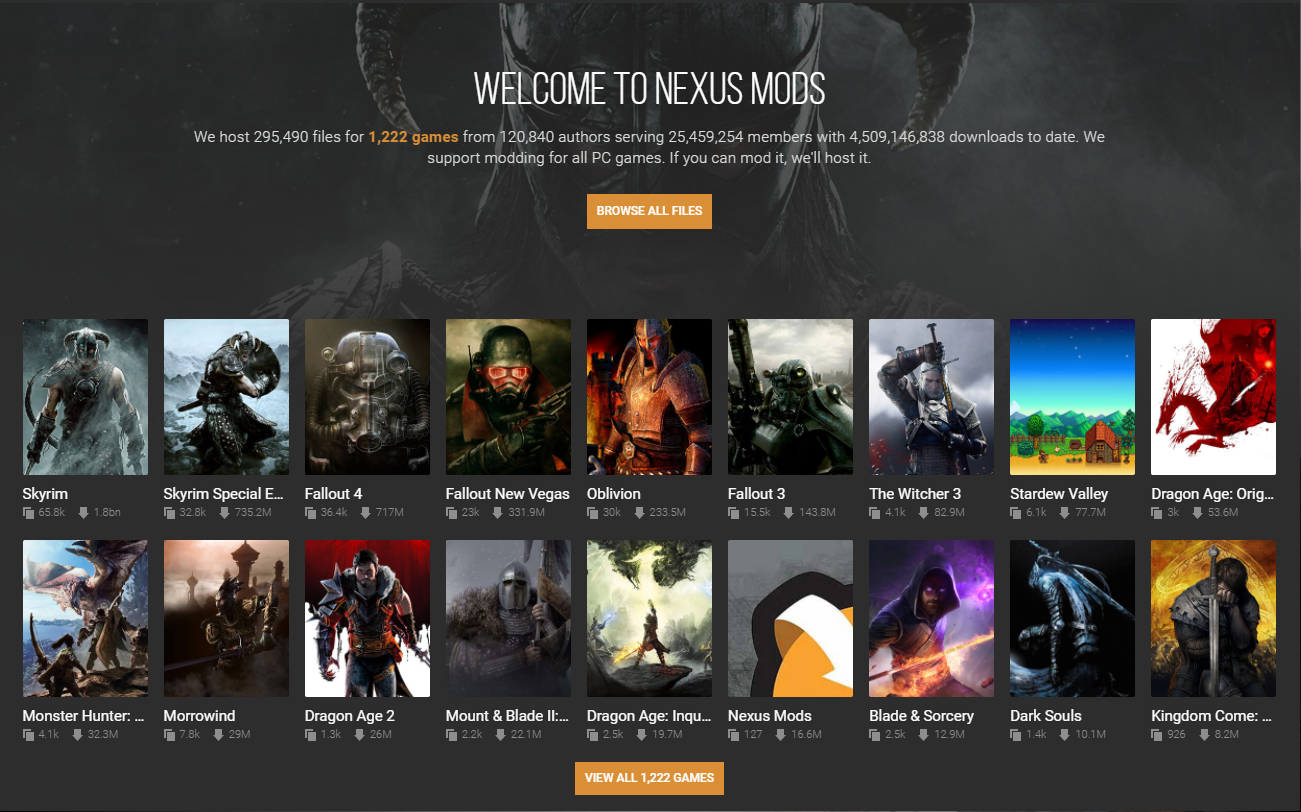
Find Like-Minded Individuals
Learning to code alone is definitely possible, and if you’re really insistent, very doable. However, one of the best ways to learn to code is to get involved with coding communities.
Coding communities offer a lot of opportunities for an aspiring coder. For one, it can be helpful to know you’re not alone in your struggles. All coders were beginners once, and having people who can empathize with you is important. Plus, many communities also allow you access to more experienced programmers. This gives you the opportunity to ask coding questions and get suggestions – allowing you to finish whatever it is you’re working on. This is not to mention that this allows you to also share your own experiences and expertise with others as you become more skilled at the craft.
However, before you start picturing communities here, know there are a bunch of different kinds of communities to get involved with. There are, of course, the usual suspects like online forums, chat servers, and similar – which don’t get us wrong, they’re great! You should know, though, that there are also plenty of communities that extend beyond this. For example, game jams have become widely popular in the indie game community. These events are not only great for showcasing your work, but do let you interact with fellow coders as well. Again, this is just one example of many. So don’t feel boxed in – if you look around, you can find a lot of ways of jumping into the community.
Nevertheless, communities are important to learning how to code, as they offer you mental support during a time where you’ll definitely need it!
Learning Resources
- Unity Forums
- Hacker News
- Stack Overflow
- Reddit – r/programming
- Women Who Code
- Itch.io GameJams
- Indie Game Jams
- Hackathons for School Kids and Teens

Showcase your Work and Get Feedback
The last of our best ways to learn to code is a rather simple one: showcase your work.
Coding is, in its own ways, similar to writing and art. Both writers and artists will swear on the fact that it is hard to get better if you only ever keep projects to yourself. Choosing not to show your work vastly limits how you can improve it, as personal bias to your own work is always at play.
The same applies to coding. No matter how much experience you get, if you don’t show your work, you’ll struggle to improve. By showcasing your work, you’re given the opportunity to learn a lot of things about the coding projects you make. For instance, the most obvious is bugs. Users will always find a way to break something that you never would have considered – and knowing these bugs and fixing them is great practice for your coding skills. Users can also spot things you might not, like performance issues and similar.
Either way, learning to code is as much about learning from your mistakes as it is succeeding. So showcasing your work to get feedback on your mistakes is a fantastic route to pursue!
Resources
- How to Build a Coding Portfolio by Daniel Buckley
- How To Build Your First Developer Portfolio by Sarah A
- itch.io
- GitHub
- Game Jolt
- Kongregate
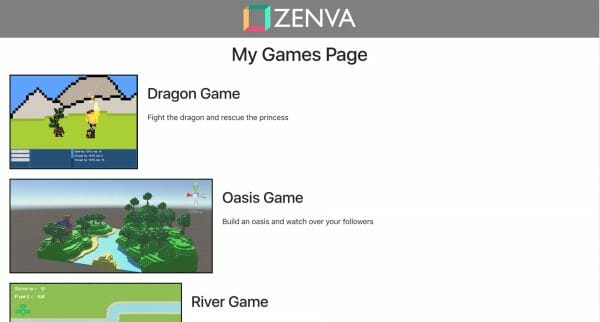
Conclusion
At this point, we’ve established our personal 10 best ways to code. However, by no means are these the only ways to learn how to code. Every coder is different, learns differently, has different interests, and so forth. There are a lot of factors to consider, and the journey to learning how to code will be a personal experience unique to you. However, if you’re stuck and still want to learn to code, we definitely believe these considerations will help you in your pursuit. They offer a fairly broad spectrum to try, and you should get a lot of experience from pursuing these methods. Regardless of what your best way to learn how to code is, we wish you the best of luck with learning to code!
